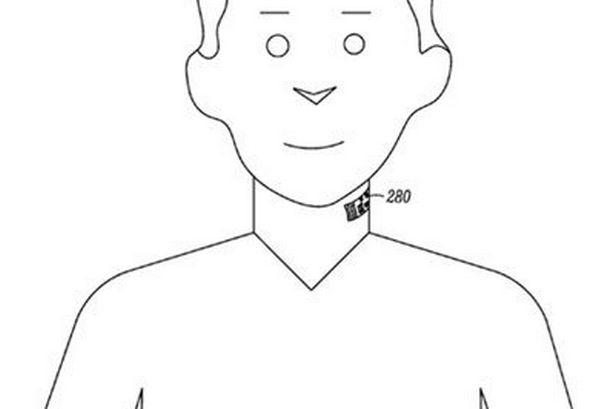
There are a lot of things about modern technology that legitimately freak me out. Mostly just looking at how much we've progressed within the past 30 years is what gets me, and that's not so much of the bad kind of "freak out" so much as a "Holy crap, some people are so smart and we've progressed so quickly," type of freak out. Every once in a while, some odd technology will come out and it will give me some bad vibes, like when I was adamantly against the Moto X's "always on" sensors, or when I went on about how Google Glass was basically a breach in privacy. And, while these things could certainly be used to do things that aren't so great, I'm not really as concerned about what bad things they can do so much as all of the good things they can do.
I've noticed an influx of new wearable technology increase in popularity this past year or so, the first being the smartwatch. Pebble's smartwatch was the first smartwatch that I noticed getting a decent amount of attention, most likely because of the decent battery life due to the eInk display, as well as the fact that the device was affordable. Following the release of the Pebble smartwatch, we also saw Sony release a second generation of its smartwatch, Samsung's Galaxy Gear smartwatch, and even the Qualcomm Toq smartwatch. Rumors of Apple releasing a smartwatch have been ablaze for months now, but with Apple's presumable last event having been and gone back in September, if we do see a smartwatch emerge from Apple it won't be anytime soon.
And then we have smart glasses, such as Google Glass or Samsung's rumored "Sports Glasses". This new wearable tech has been widely talked about, but hasn't exactly been accessible. The smart glasses concept is still very much in developmental stages, but we know it is at least in the works. These smart glasses will be able to look up websites, record videos, take photos and more all from a small frame that rests on the face, similar to how glasses are worn.
Innovation is still budding in this industry, and in recent news we find that Motorola may be taking a step farther with what most people have been dubbing a "throat tattoo" patent. The general consensus seems that people are somewhat frightened of the idea of having a wearable patch on your neck. But coming from somebody who normally voices against these types of devices, I'm not really all that upset over it.
It might be the fact that it's just a patent right now - it's just an idea. Somebody had an idea, wants to see the idea come to life one day and decided to make sure nobody else could take it. They never specified what it would be used for, or how; the idea has just been patented. I know the most natural thing for us to do is to jump to conclusions by assuming that these "tattoos" will be sewn into our skin and used for the greater evil, as every sci-fi movie worth watching has taught us that this is what these things were meant for, but realistically I believe the use of such an idea is going to be much simpler than that.
And let's set one thing straight here - I'm about 99.8% certain these "tattoos" are just meant to be stickers, not actual tattoos. Don't let the term scare you. That being said, there's still room for error, and that .2% chance could come to bite me in the butt one day. But I'm fairly certain we have nothing to worry about when it comes to actually having some computer chip inserted in your skin that works with your smartphone.
From what I gather, at least on the scientific side of things, these devices would be use to help get rid of that botched out sound that we encounter when talking on the phone sometimes. The idea is that these chips could be used to pick up vibrations from our throat, and correct the sound to a crisper version of what we were trying to say. The technology could essentially be very useful for a lot of reasons. But then you get to the iffy part of the whole thing, and that's Section 0027 of the patent, which states that there is an optional “galvanic skin response detector". This vague statement makes skeptics think that this little sticker might be able to detect when somebody is lying because generally speaking, a lot of people start to sweat when they're nervous about something. God forbid anybody has a genetic condition where they just sweat a lot; they're probably just chronological liars anyway, right? Either way, I'm not entirely convinced that's what it would be used for. I think people are just jumping the gun on this one, and that's coming from somebody who has a bad habit of jumping the gun herself.
It's just a patent for now, and until we actually see it employed (which might never happen) we should just chill. When they actually come out with a device that needs to be grafted to our skin and is able to tell when we're lying, then we can start running in circles with our hands in the air, panicking.
Readers, what are your thoughts on this strange patent? Do you think this patent is a bad idea or a good idea? Share your thoughts with us in the comments below!
Image via Independent